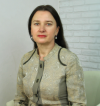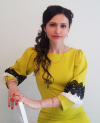References
- Forecast of the long-term socio-economic development of the Russian Federation for the period up to 2030: approved. Decree of the Government of the Russian Federation of October 06, 2021. № 2816-r [Electronic resource]. Electron. dan. URL: http://www.consultant.ru/document/cons_doc_LAW_144190/ (date of access: 05.16.2022). (In Russ.)
- Strategy of scientific and technological development of the Russian Federation: approved. Decree of the President of the Russian Federation of December 1, 2016. № 642 [Electronic resource]. Electron. dan. URL: http://sntr-rf.ru/upload/iblock/c80 (date of access: 05.16.2022). (In Russ.)
- Strategy for the development of youth of the Russian Federation for the period up to 2025 [Electronic resource]. Electron. dan. URL: https://fadm.gov.ru/documents/download/348 (date of access: 05.16.2022). (In Russ.)
- The concept of development of continuous adult education in the Russian Federation for the period up to 2025 [Electronic resource]. Electron. dan. URL: http://www.dpo-edu.ru/?page_id=13095 (date of access: 05.16.2022). (In Russ.)
- Bordovsky G. A., Pakhomov N. N. Does our educational system have a customer? (Notes to the GOELRO Plan for the XXI century). In: Vysshee obrazovanie segodnya. 2019. № 10. С. 2‒6. (In Russ.)
- Vershlovsky S. G. Andragogy : teaching aid. Saint-Petersburg, 2014. 148 р. (In Russ.)
- Kochemasova L. A. Research activities in the professional training of a student in an electronic digital environment. In: Obrazovanie cherez vsyu zhizn': nepreryvnoe obrazovanie v interesah ustojchivogo razvitiya: materials of the 17th Intern. conf. Saint-Petersburg, 2019. Part I. Р. 420‒424. (In Russ.)
- Kicherova M. N., Muslimova E. O. et al. Informal education and human capital. Tyumen, 2020. 316 p. (In Russ.)
- Povolyaeva M. N., Popova I. N., Dubovik I. M. Development of non-formal education in modern Russia and abroad. Moscow, 2015. 120 p. (In Russ.)
- Yakushkina M. S. Non-formal educational practices in the space of continuous education of teachers. In: Chelovek i obrazovanie. 2020. № 1 (62). Р. 9‒15. (In Russ.)
- Improving teacher evaluation systems: Making the most of multiple measures. New York, 2015. 208 р.
- Vanhemping E. G., Ivanishcheva N. A., Petrenko E. I. Design of education in the paradigm «University 4.0». Saint-Petersburg, 2021. 227 р. [Electronic resource]. Electron. dan. DOI: 10.52565/9785911551346 (date of access: 05.16.2022). (In Russ.)
- European system of qualifications [Electronic resource]. Electron. dan. URL: http://fedmet.org/files/Sector %20Skills %20Council/World %20Experiance/EQF.pdf (date of access: 05.16.2022). (In Russ.)
- Ivanishcheva N. A., Kochemasova L. A. Self-education as a trend of the knowledge culture paradigm of a student of a pedagogical university. In: Vestnik Orenburgskogo gosudarstvennogo universiteta. Electronic scientific journal. 2021. № 1 (229). Р. 22‒30 [Electronic resource]. Electron. dan. DOI: 10.25198/1814-6457-229-22 (date of access: 05.16.2022). (In Russ.)













